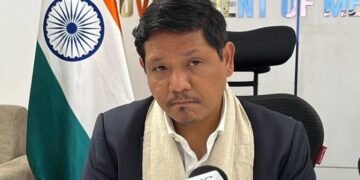On December 11, the Parliament turned into a battleground as protests led by the ruling BJP MPs and leaders of the opposition INDIA bloc, including Congress leaders Mallikarjun Kharge and Rahul Gandhi intensified over the Ambedkar row. The agitations took an ugly turn after MPs from both protesting sides clashed on the premises of the Parliament. All the political slugfest started with Home Minister Amit Shah’s statement on B R Ambedkar in the Rajya Sabha during a debate on the Constitution. The Opposition sought action against Shah for his remarks which they claimed were an insult to Ambedkar. MPs of the Congress, DMK, RJD, the Left, AAP, among others, participated in the protest. Hitting back at the Opposition, Shah accused the Congress of twisting facts and distorting his comments on Ambedkar in the Rajya Sabha, asserting that the party launched the malicious campaign after the discussion on the Constitution “established” Congress party as being “anti-Ambedkar and anti-reservation”.
Babasaheb Ambedkar is no less than a god for his followers. On several occasions, violence erupted whenever his statue was damaged or insulted. A recent example is a violent protest which took place in Maharashtra’s Parbhani on December 12. Ambedkar holds a two-dimensional influence on Indian society. One is political influence and another is social. Experts credited Ambedkar for the social justice movement in India which empowered backward and suppressed classes in the country. The BJP and the Congress, who are in the race to represent themselves as the biggest follower of Ambedkar, do not have a very good track record when it comes to implementing Ambedkarism. However, in India perception does matter and so every party projects itself to be an ardent supporter of Ambedkar to woo voters. There would be hardly a state in India where vote bank politics is not played in the name of Ambedkar.
The father of the Indian Constitution is a key figure in the Hindi heartland and Dravidian states. Since Ambedkar became a synonym of reservation and social justice politics, politics revolved around Dalit and OBC issues. Also since Ambedkar is the biggest Dalit or backward class icon, no politician wants to stand out of line. In the last few years, those whose politics were around Ambedkar’s ideology have been losing their electoral ground. Mayawati-led BSP is in declining mode. After the death of Ram Vilas Paswan and Mayawati’s poor shows in elections, there is a space for newcomers to lead Dalit politics in the country. The national parties – the Congress and the BJP want to fill that vacuum. Some smaller parties in Bihar and Maharashtra are also working to strengthen Ambedkar’s ideology in their respective states. The OBC factor has emerged as decisive in the elections in the country. Vote bank politics is at play.


























